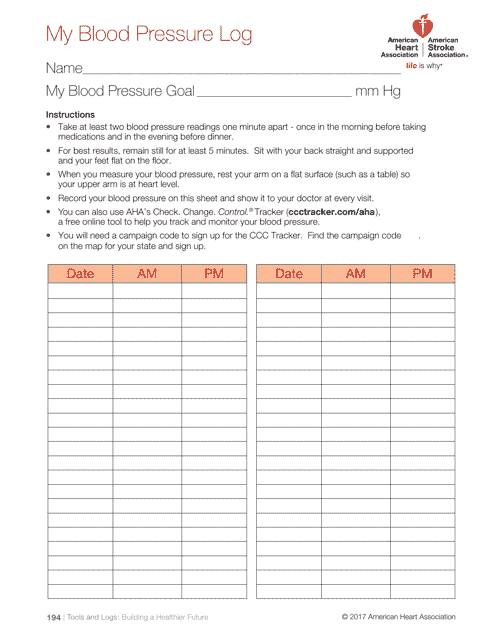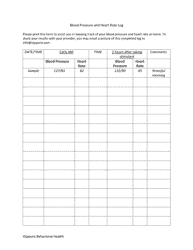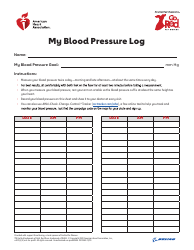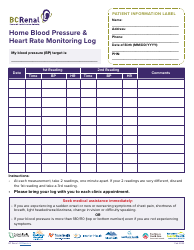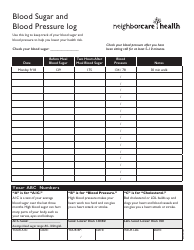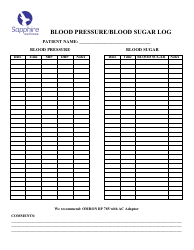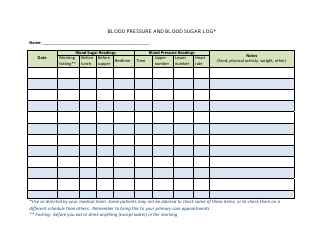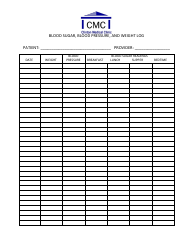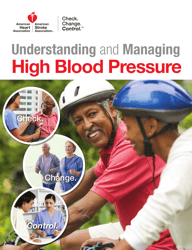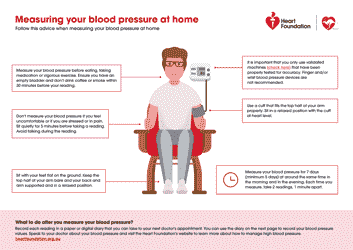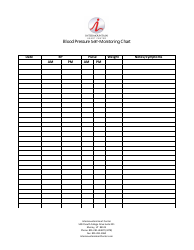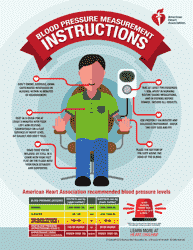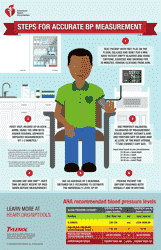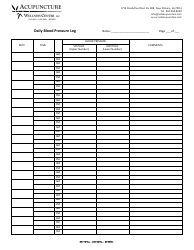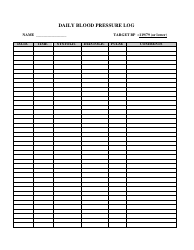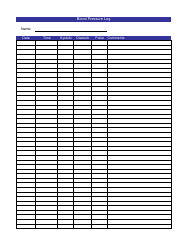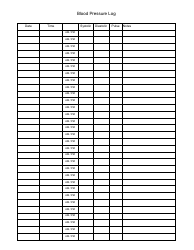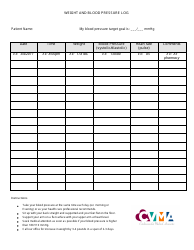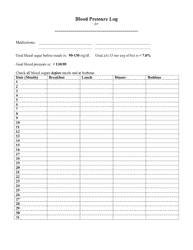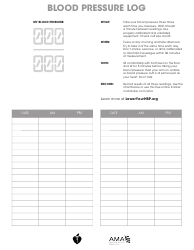Blood Pressure Log - American Heart Association
The Blood Pressure Log by the American Heart Association is used for tracking and monitoring blood pressure readings over time. It helps individuals to keep a record of their blood pressure levels, which can be useful for managing hypertension or other cardiovascular conditions.
FAQ
Q: What is a blood pressure log?
A: A blood pressure log is a tool used to track and record your blood pressure readings over time.
Q: Why is it important to keep a blood pressure log?
A: Keeping a blood pressure log can help you and your healthcare provider monitor your blood pressure levels and make informed decisions about your treatment plan.
Q: How often should I check my blood pressure?
A: It is recommended to check your blood pressure at least once a day, or as advised by your healthcare provider.
Q: What should I include in my blood pressure log?
A: You should include the date, time, and the readings of your blood pressure measurements in your log.
Q: How do I measure my blood pressure?
A: To measure your blood pressure, you will need a blood pressure monitor, usually a cuff that goes around your arm, and a stethoscope or digital device.
Q: What are normal blood pressure levels?
A: Normal blood pressure levels are usually around 120/80 mmHg. However, optimal blood pressure may vary depending on your age, health condition, and other factors.
Q: What are the risk factors for high blood pressure?
A: Risk factors for high blood pressure include obesity, a sedentary lifestyle, smoking, stress, a family history of hypertension, and certain medical conditions such as diabetes and kidney disease.
Q: How can I lower my blood pressure?
A: You can lower your blood pressure by maintaining a healthy weight, following a balanced diet low in sodium and high in fruits and vegetables, exercising regularly, managing stress, and avoiding smoking and excessive alcohol consumption.
Q: When should I seek medical help for high blood pressure?
A: You should seek medical help for high blood pressure if your readings consistently exceed 130/80 mmHg or if you have symptoms such as severe headaches, chest pain, shortness of breath, or dizziness.
Q: Can I manage my blood pressure without medication?
A: In some cases, lifestyle changes alone may be able to effectively manage high blood pressure. However, it is important to consult with your healthcare provider to determine the best treatment plan for your individual situation.
